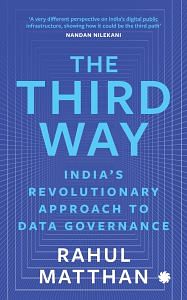One way to take this data collection exercise even further is to gather information when the subject is away from their screen and keyboard. The ability to collect ambient data in unstructured environments when the subject is unaware that they may be contributing useful information can provide unexpected outcomes. This is one of the reasons why we have seen an explosion of voice-enabled smart assistants capable of operating entirely through voice commands in a conversational interface. These are always at hand, listening to what we say to them and because of this, they extend the scope of data collection beyond the previously possible.
If the idea of having a device in our home that is always on, listening to everything we say sounds creepy, it doesn’t seem to have affected the popularity of these devices. To many, the convenience of interacting with technology using a friendly voice interface is a trade-off they seem willing to make in exchange for giving up the personal information they make available in the process. Those who are marginally sceptical take comfort in manufacturers’ assurances that these devices only turn themselves with a specific activation command and stay dormant at all other times. But the moment you think about that assurance a bit more, the more it becomes apparent how weak it is.
In order for smart devices to wake up as soon as they are summoned they must, in fact, always be listening. They can’t know we are calling unless they have one ear constantly open. We know this because we have all had moments when a random phrase uttered as part of a conversation has made a smart device switch on and start taking some action or the other. Who knows how many other times these devices might have turned themselves on in response to a misheard phrase and taken various autonomous measures on their own accord? Or what information they might have gathered about us without our knowledge?
When Victor Collins was discovered floating face-up in his friend’s hot tub, the judge had no hesitation in issuing a search warrant for all ‘audio recordings, transcribed records, text records, and other data’ from the smart device in the house. The prosecution hoped that any recordings that might have been captured on that fateful night would offer insights into what had actually transpired during that night of drinking and watching football, and the judge did not see anything wrong in using the device to get to the truth. This begs the question of how safe we are in our own homes when our smart assistants turn informers for the police.
In another incident, this time involving domestic violence, a smart device that had turned itself on during a heated (and violent) argument misheard the angry boyfriend’s repeated screams at his girlfriend: ‘Did you call the sheriff? Did you call the sheriff?’ as an instruction and phoned the sheriff ’s department of its own accord. To their credit, the companies involved have always resisted the request to turn over information, usually only acquiescing when they get an order from the court. But how long before providing access to the data becomes the norm?
As we navigate the implications of these technologies, it’s essential to consider the broader context of surveillance and data collection. The rise of smart devices parallels the increasing use of facial recognition technology in public spaces, raising questions about privacy and the extent of monitoring in our daily lives.
But that is not the only category of smart device that can provide useful evidence about us to law enforcement. When sixty-seven-year-old Karen Navarra was murdered in her house in San Jose, California, on 13 September 2018, the police were puzzled. Her stepfather, Anthony Aiello, had briefly visited that afternoon to drop off some homemade pizza and biscotti, and he confirmed that his stepdaughter was alive when he had left. But as the investigation wore on, the police discovered from the Fitbit fitness tracker Karen was wearing that her heart rate had spiked significantly around 3.20 p.m. when she was still with Aiello in her apartment and that it slowed down rapidly to a halt at 3.28 p.m., a full five minutes before the neighbours confirmed he left.
This was enough for Anthony to be arrested for her murder. The devices we wear offer inadvertent insights into our behaviour. There was a time when Fitbits recorded users’ sexual activity and, thanks to what I can only assume to be an accidental error, made it possible for this information to be published online. Since most users had their activity logs set to public access by default, all their friends got to see whether they were engaged in ‘mild to moderate’, ‘passive, light effort’, or ‘active and vigorous’ sexual activity.
When Strava (a website designed to offer deep insights into athletic performance) released a global heat map of where people exercise, it disclosed, without realizing it, classified information about the deployment of American troops in potentially sensitive military sites in Afghanistan and Syria. It also geolocated the secret headquarters of Taiwan’s missile command that housed the defensive long-range weapons it had trained on China. There is little doubt that the technology we surround ourselves with – the websites we visit, the applications we use, the smart machines around us – know more about us than we do ourselves. We trust that the companies who control them will use this knowledge for the purposes they say they will and nothing more. But this is blind faith. The companies’ actions are impossible to verify because they take place behind a veil.
The algorithms of these websites and the technologies packed into the electronics around us are so complex, so intricately interwoven with other systems, that it is impossible for anyone, including the companies that run them, to fully understand everything they are capable of and what they actually do. What we do know for certain is that none of us have anything close to the level of autonomy we believe we do over our digital lives. Even when we think we control the decisions we make – what we buy, the places we eat at or where we decide to go for a vacation – our path has, at least to some extent, been influenced by the electronic companions we keep.
 This excerpt from Rahul Matthan’s ‘The Third Way: India’s Revolutionary Approach to Data Governance’ has been published with permission from Juggernaut Books.
This excerpt from Rahul Matthan’s ‘The Third Way: India’s Revolutionary Approach to Data Governance’ has been published with permission from Juggernaut Books.






